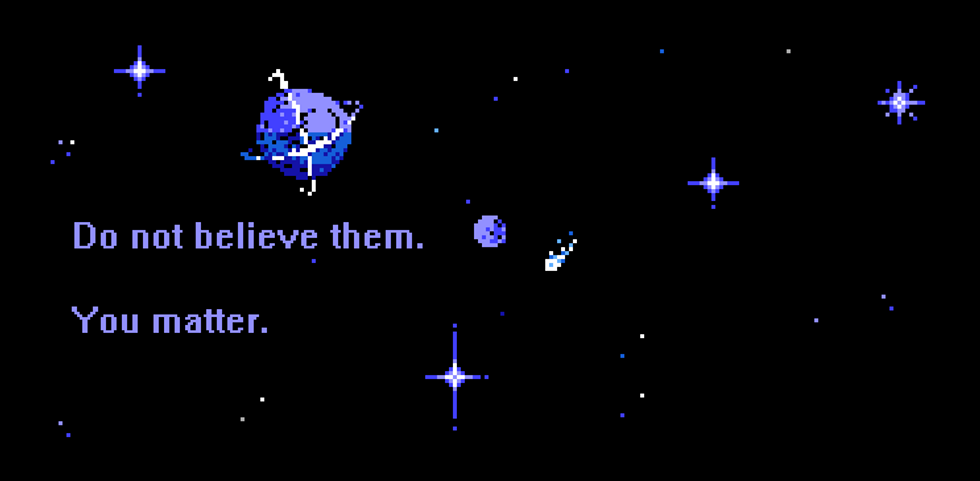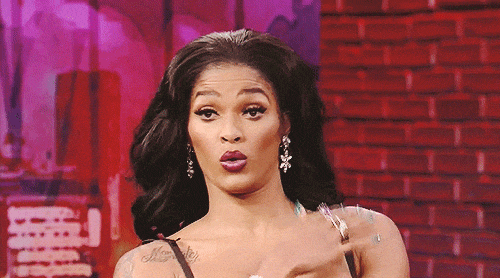On my first day of elementary school, I pranced around my room as my mother dressed me in my knee-high socks and navy blue uniform. We had just made a 765 mile move from New York to a small town in suburban Georgia.
It was a drastic change that I embraced the entire time — from the 16-hour drive down to moving in with my grandmother, I loved every part of it. At first, Georgia was a haven in my young mind — the cicadas sang me to sleep, the honeysuckle bushes in my backyard provided a sweet snack on sultry summer days. I despised the abrasiveness of the New York, how no one seemed to just stop for a moment and breathe — every aspect of the city spelled out the word "busy." The city buses and taxis maneuvered the streets like speedy snakes, accelerating and breaking freely; the people who walked in the city seemed like they were in a constant state of rushing. I immediately adored how different Georgia was from that.
I didn't know that five years after that, I would enter middle school and my perspective would be shifted. The school I attended touted diversity and inclusion but I couldn't help feeling out of place, especially my first few years there. My classmates were either white or black; there was no in between.
"Are you, like, mixed with something?" I remember hearing this question over and over, along with, "Where are you from?" always followed by my personal favorite, "No, like, where are you froooom?"
Let me introduce myself: I was born in Brooklyn, New York to parents both of full Puerto Rican descent. I've actually only been to Puerto Rico once, when I was too young to remember it, and while I can comprehend and read most Spanish, I tend to avoid speaking it because I can't do the beautiful language any justice with my clumsily rolled Rs and lack of a legitimate accent.
When I entered middle school, I learned lots about fractions and finally mastered the mystery of long division, but I also learned to hate who I was. It wasn't taught by any teacher or one person, but through small acts of exclusion and the social hierarchy every school possesses.
My hair straightener became my best friend. I longed to be like the white girls in my grade with the pin-straight hair and flawless skin. I envied their Vera Bradley lunch boxes and Michael Kors watches. All I wanted was to belong with them, to look just like them, to just be their friend. Here's a quote from a journal I kept during those dark years, from yours truly:
"So I started to despise every aspect of myself, and I began picking at my flaws like scabs ... It's just, I feel so intimidated that some girls can be so flawlessly perfect, and I feel like I'm sort of just, there. I feel insignificant. Like a bother, a second option, a last resort..."
I became that angsty teen stereotype we're all familiar with; I took no pride in how I looked and even less in my ethnicity. I wished I didn't have to bubble in the "Hispanic/Latino" box during every standardized test we took because I knew of the 114 people in my grade I'd be one of only three filling it in.
It took me a couple of misguided years to realize that I am extraordinary. All I needed were some special humans I am lucky to call friends, a couple exceptional trips to New York over the summer and my own will to finally look into the mirror and take pride in who I was. My "frizzy, unmanageable hair" became beautiful, bouncy curls, and I started seeing my body in a positive light, as well. I stopped wishing that I would fit in and started appreciating the fact that I didn't. When I stopped focusing on aspects of myself I wish would change, I started seeing the parts of myself that were lovely.
So, let me reintroduce myself.
My name is Victoria Vega — coincidentally the name of the character from Victorious — and I am not mixed. I am not "one of those island people" (a real quote used towards me, once). I am not white or black; I'm Hispanic. More specifically, I am Puerto Rican.
And I am proud.























